#Network Segregation
Explore tagged Tumblr posts
Text
Network Segregation in the Cloud Era: Challenges and Solutions
In today's digital landscape, where businesses increasingly rely on cloud infrastructure for their operations, ensuring robust network security is paramount. One crucial aspect of this security is network segregation, which involves dividing a network into distinct segments to minimize the risk of unauthorized access and data breaches. However, in the cloud era, traditional approaches to network segregation face new challenges and complexities. This article explores these challenges and offers solutions to effectively navigate network segregation in the cloud.
The Evolution of Network Segregation
Traditionally, network segregation was implemented within on-premises infrastructure using physical devices like routers, switches, and firewalls. By creating separate network segments for different departments or types of data, organizations could control access and contain potential security threats. However, with the widespread adoption of cloud computing, the landscape has evolved.
Challenges in the Cloud Era
Dynamic Workloads: In a cloud environment, workloads are often dynamic, with resources scaling up or down based on demand. This dynamic nature complicates traditional network segregation methods, as static configurations may not adapt quickly enough to changes in the environment.
Virtualized Networks: Cloud platforms utilize virtualization technologies to abstract physical hardware and create virtual networks. While this offers flexibility and scalability, it also introduces new complexities in managing network segmentation, as virtual networks may span multiple physical locations or cloud providers.
Interconnected Services: Modern applications are composed of microservices running across distributed environments. These interconnected services communicate over the network, blurring traditional boundaries between segments. Ensuring adequate segregation while maintaining seamless communication poses a significant challenge.
Shared Responsibility Model: Cloud providers operate on a shared responsibility model, where they secure the underlying infrastructure, but customers are responsible for securing their data and applications. This requires clear delineation of responsibilities and coordination between cloud providers and customers to implement effective network segregation.
Solutions for Effective Network Segregation
Zero Trust Architecture: Adopting a zero trust approach assumes that no entity, whether inside or outside the network, should be trusted by default. Instead, access controls are strictly enforced based on identity, device posture, and contextual information. Implementing a zero trust architecture helps mitigate the risks associated with dynamic workloads and interconnected services in the cloud.
Software-Defined Networking (SDN): SDN enables centralized management and programmable control of network infrastructure, making it well-suited for dynamic cloud environments. By abstracting network policies from physical hardware, SDN allows for automated and flexible network segmentation, adapting to changes in workload and traffic patterns in real-time.
Microsegmentation: Microsegmentation involves dividing the network into small, isolated segments to limit lateral movement of threats. In the cloud, this can be achieved using native security features provided by cloud providers or third-party solutions. By applying granular access controls at the workload or application level, organizations can enforce least privilege principles and contain potential breaches.
Cloud-native Security Tools: Leveraging cloud-native security tools and services can enhance network segregation in the cloud. Many cloud providers offer native firewall solutions, network access control lists (ACLs), and intrusion detection/prevention systems (IDS/IPS) that integrate seamlessly with their platforms. These tools provide visibility and control over network traffic, allowing organizations to enforce segmentation policies effectively.
Conclusion:
As businesses increasingly migrate their workloads to the cloud, ensuring robust network segregation is essential to safeguarding sensitive data and mitigating security risks. However, the dynamic and interconnected nature of cloud environments presents new challenges for traditional segregation methods. By adopting modern approaches such as zero trust architecture, SDN, microsegmentation, and leveraging cloud-native security tools, organizations can effectively navigate these challenges and secure their networks in the cloud era.
0 notes
Text
Doorbell rang so my dad went off to get it, and when he came back and I asked who it was he just said "Ugh 😒 Just some Round Table nonsense" & I'm like "?????? Round Table as in King Arthur's Round Table??" "Yeah :/" The goddamn Knights Templar were at our front door and you just sent them away???
EDIT: Ofc (as an agender person myself) I know that the weird AGAB-based requirements for admission aren't actually trans-inclusive, lol; my comment was meant to be more of a tongue-in-cheek "Diversity win: this weirdly gender-segregated kind-of-Masonic networking society accepts trans men, too!" kind of thing, but in retrospect that rly didn't come across LOL. What can I say, sometimes you make a 5min post on the loo not expecting it to blow up & then have to reckon with the fact that other people can't read your mind 🤷♂️
19K notes
·
View notes
Text
was thinking about this

To be in "public", you must be a consumer or a laborer.
About control of peoples' movement in space/place. Since the beginning.
"Vagrancy" of 1830s-onward Britain, people criminalized for being outside without being a laborer.
Breaking laws resulted in being sentenced to coerced debtor/convict labor. Coinciding with the 1830-ish climax of the Industrial Revolution and the land enclosure acts (factory labor, poverty, etc., increase), the Metropolitan Police Act of 1829 establishes full-time police institution(s) in London. The "Workhouse Act" aka "Poor Law Amendment Act of 1834" forced poor people to work for a minimum number of hours every day. The Irish Constabulary of 1837 sets up a national policing force and the County Police Act of 1839 allows justices of the peace across England to establish policing institutions in their counties (New York City gets a police department in 1844). The major expansion of the "Vagrancy Act" of 1838 made "joblessness" a crime and enhanced its punishment. (Coincidentally, the law's date of royal assent was 27 July 1838, just 5 days before the British government was scheduled to allow fuller emancipation of its technical legal abolition of slavery in the British Caribbean on 1 August 1838.)
---
"Vagrancy" of 1860s-onward United States, people criminalized for being outside while Black.
Widespread emancipation after slavery abolition in 1865 rapidly followed by the outlawing of loitering which de facto outlawed existing as Black in public. Inability to afford fines results in being sentenced to forced labor by working on chain gangs or prisons farms, some built atop plantations.
---
"Vagrancy" of 1870s-onward across empires, people criminalized for being outside while being "foreign" and also being poor generally.
Especially from 1880-ish to 1918-ish, this was an age of widespread mass movement of peoples due to the land dispossession, poverty, and famine induced by global colonial extraction and "market expansion" (Scramble for Africa, US "American West", nation-building, conquering "frontiers"), as agricultural "revolutions" of imperial monoculture cash crop extraction resulted in ecological degradation, and as major imperial infrastructure building projects required a lot of vulnerable "mobile" labor. This coincides with and is facilitated by new railroad networks and telegraphs, leading to imperial implementation or expansion of identity documents, strict work contracts, passports, immigration surveillance, and border checkpoints.
All of this in just a few short years: In 1877, British administrators in India develop what would become the Henry Classification System of taking and keeping fingerprints for use in binding colonial Indians to legal contracts. That same year during the 1877 Great Railroad Strike, and in response to white anxiety about Black residents coming to the city during Great Migration, Chicago's policing institutions exponentially expand surveillance and pioneer "intelligence card" registers for tracking labor union organizing and Black movement, as Chicago's experiments become adopted by US military and expanded nationwide, later used by US forces monitoring dissent in colonial Philippines and Cuba. Japan based its 1880 Penal Code anti-vagrancy statutes on French models, and introduced "koseki" register to track poor/vagrant domestic citizens as Tokyo's Governor Matsuda segregates classes, and the nation introduces "modern police forces". In 1882, the United States passes the Chinese Exclusion Act. In 1884, the Ottoman government enacts major "Passport Nizamnamesi" legislation requiring passports. In 1885, the racist expulsion of the "Tacoma riot".
Punished for being Algerian in France. Punished for being Chinese in San Francisco. Punished for being Korean in Japan. Punished for crossing Ottoman borders without correct paperwork. Arrested for whatever, then sent to do convict labor. A poor person in the Punjab, starving during a catastrophic famine, might be coerced into a work contract by British authorities. They will have to travel, shipped off to build a railroad. But now they have to work. Now they are bound. They will be punished for being Punjabi and trying to walk away from Britain's tea plantations in Assam or Britain's rubber plantations in Malaya.
Mobility and confinement, the empire manipulates each.
---
"Vagrancy" amidst all of this, people also criminalized for being outside while "unsightly" and merely even superficially appearing to be poor. San Francisco introduced the notorious "ugly law" in 1867, making it illegal for "any person, who is diseased, maimed, mutilated or deformed in any way, so as to be an unsightly or disgusting object, to expose himself or herself to public view". Today, if you walk into a building looking a little "weird" (poor, Black, ill, disabled, etc.), you are given seething spiteful glares and asked to leave. De facto criminalized for simply going for a stroll without downloading the coffee shop's exclusive menu app.
Too ill, too poor, too exhausted, too indebted to move, you are trapped. Physical barriers (borders), legal barriers (identity documents), financial barriers (debt). "Vagrancy" everywhere in the United States, a combination of all of the above. "Vagrancy" since at least early nineteenth century Europe. About the control of movement through and access to space/place. Concretizing and weaponizing caste, corralling people, anchoring them in place, extracting their wealth and labor.
You are permitted to exist only as a paying customer or an employee.
#get to work or else you will be put to work#sorry#intimacies of four continents#tidalectics#abolition
3K notes
·
View notes
Note
genuine question why are charter schools to blame for decreased literacy in your opinion? Because of the remote learning aspect or smth else also?? I went to one & honestly did better with it than traditional hs but I had very high reading comprehension already, had no busses in my area & no parent that could drive me to school so it was a pretty specific situation where that environment worked out better for me
Well I’m glad it worked out for you but institutionally charter schools are so detrimental to public education. Let me explain why:
The principle behind charter schools, that increased competition will force public schools to be better, frames education as a product rather than a public utility. If education quality is determined by the free market, the winners and losers are children, which is just a morally unacceptable outcome to me.
Shouldn’t ignore that the school choice movement started as a way to advocate for the perpetuity of segregation. On average charters are more racially segregated than publics.
The way in which public schools receive funding varies state to state, but most states do some amount of funding per pupil. What that means is that when students switch from public schools to charter schools they take that per people funding with them if you’re leaving an underperforming public school that’s underperforming because it’s underfunded you are making the problem worse. Not everyone can leave.
Charter schools can legally kick students out if they want to. This means if students stop performing well, or if disabled or english-language learner students need extra support, they can just be removed. A lot of “charters have higher test scores” is just charters only admitted high-performing and low-need students, which puts even more of a strain on public schools.
They are really unregulated. Many “charter-friendly” states have minimal accountability measures for charter schools in a way that leads to many running the gamut between negligence to committing literal fraud instead of providing free and appropriate public education. Charter networks are multibillion dollar businesses this system gets exploited by private equity all the time.
That lack of regulation or accountability also shows up in disciplinary outcomes. The school to prison pipeline is already unforgivably bad in a public environment, but unregulated charter schools often implement draconian “zero tolerance” policies that result in black and brown students getting treated like they’re in a police state. Public schools can’t suspend or expel you or call the cops on you for how you wear your hair. They can’t escalate to dramatic consequences as quickly or do a 3 strikes demerit system. There are no legal guardrails against this in charters.
Often exist to circumnavigate teachers’ union contracts and other labor laws. This means teachers at charters are often overworked, underpaid, micromanaged, and have EXTREMELY high turnover. The additional strain on teachers and overrepresentation of first-teachers who burn out in the system and get replaced makes for bad educational environments in a lot of places.
All of these are even more of a problem because of the way that charter networks like KIPP were marketed as a way to fix public schools in black and brown areas, and have just kneecapped public schools while providing students with subpar educational outcomes instead.
#I hate charter schools so fucking much it’s unreal#this is what I have done with my ed policy degree. also why I quit ed policy. lol
696 notes
·
View notes
Text
Okay time for the PBS Kids essay
Read it under the cut!
:readmore:
In 1968, before there was PBS Kids proper, there was Mr. Roger’s Neighborhood. While it came several decades before the children’s block, it laid the foundation for the themes and values present in every facet of the network’s history.
Mr. Roger famously hated children’s programming at the time. To him, it all was droll and useless. But he didn’t dissuade the medium entirely— he saw potential. Potential that led to a few smaller television jobs, and eventually the creation of Mr. Roger’s neighborhood.
Rogers didn’t invent educational TV for children, but he did perfect it. He poured real heart and soul into probably the most sincere, heartfelt program in history.
Honestly, he could have his own essay. The more things you learn about the real man of Mr. Rogers, the more you’ll like him.
Anyway, the biggest thing that makes PBS different is the fact that it earns money through grants, fundraisers, and private donors— not through sponsorships and merchandise sales. This way, PBS Kids can push programming that it feels is important, rather than programming that merely sells well.
This also means PBS is less afraid of pushing social boundaries. Money doesn’t go away when their shows become subjects of debate— and Mr. Rogers took full advantage of this.
For context, this was 1969. The Jim Crow era had just barely, barely ended. Pool segregation was still very much legal.
youtube
Mr. Rogers sharing a pool and a towel with the Black Mr. Clemmons was a pretty big deal at the time— especially on a show made for children.
Rogers was far from the untouchable sacred cow of today. When he was alive, he had a large number of detractors. Let’s just say that scene didn’t fly nicely by everyone.
Just one year after the debut of Mr. Roger’s came Sesame Street.
While Mr. Roger’s was made for all children, Sesame Street had the explicit goal of supplementing the education of underserved communities— especially inner-city Black (and later Latino) children.
While it was made to be accessible to children of all races and income levels, they definitely went the extra mile to make it something special for inner-city Black and Brown kids. (Why do you think it it’s “Sesame Street” and not “Sesame Cul-de-Sac”?)
At the time, a wholesome, sweet show set in a brownstone street was practically unheard of.
Jon Stone, the casting director, deliberately sought to make the cast as rich with color as he possibly could, bringing on a huge amount of Black talent such as Loretta Long, Matt Robinson, and Kevin Clash, as well as featuring Black celebrities as guest stars. Later, the show would expand its horizons, bringing on actors from Latino, Asian, Native American, and many more backgrounds.
White actors were and still are a minority on show.
In addition to letters and numbers, the purpose of Sesame Street is clear: make kids of color know that they’re smart, beautiful, and loved.
youtube
It doesn’t get more explicit than this.
I want to point out this comment because it’s funny
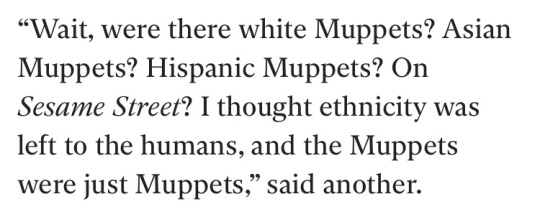
You’re telling me this bitch isn’t Hispanic???
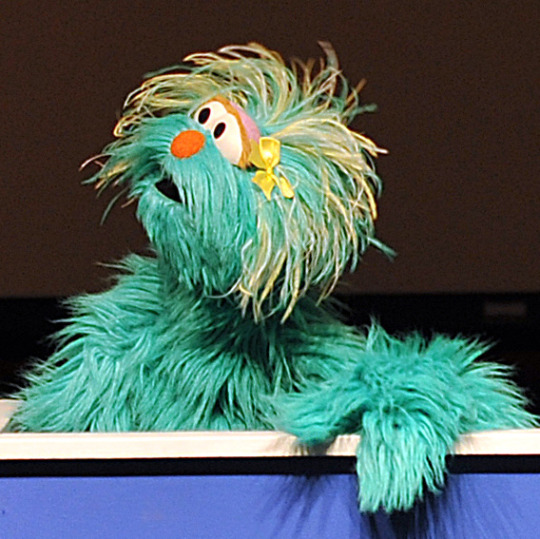
Anyway, these two were followed up by Reading Rainbow in 1983. And guess what?
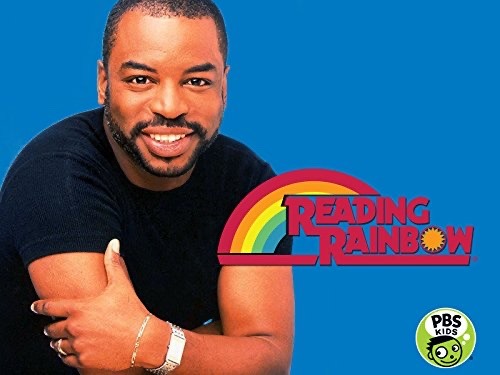
That’s right. Non-white focus.
These three shows, (along with other, lesser-known programs like Lamb-Chops Play Along, Newton’s Apple, and Shining Times Station (who featured Ringo Starr himself?? seriously how did that happen and why does no one talk about it) and some other nostalgic favorites like Bill Nye the Science guy, The Magic Schoolbus, Arthur, and Thomas the Tank Engine) aired on the new PTV block, which evolved into PBS Kids in 1999, bringing along Between the Lions, Dragon Tales, and many more.
Arthur is another stand-out that I’d like to talk about— it doesn’t have the same racial focus of Sesame Street, but it does focus on different income levels. The characters have various housing situations, from apartments to mansions to no home at all.
It also takes cues from Sesame Street and Mr. Roger’s in regards to talking about tough topics, though as Arthur has a slightly older target audience, it discusses things through stories rather than talking directly to the audience.
Cancer, religion, workplace discrimination, along with current (at the time) events such as 9/11 and Hurricane Katrina are all discussed on the show.
Another big focus on Arthur is disability. For once, they don’t stick a character in a wheelchair and then pretend he’s not in a wheelchair. A striking number of major characters either develop or get diagnosed with physical disabilities and/or neurodivergences, such as asthma, severe food allergies, and dyslexia, and they deal with them in very realistic ways.
A handful of minor characters have more obvious disabilities, and THANK GOD they go beyond the trite messaging of “disabled people can do everything abled people can do! everyone clap now!”
One episode in particular has the awesome message of “holy shit stop trying to help me all the time— it’s patronizing as fuck. I can get around just fine without you stepping on eggshells and trying to be the hero all the fucking time”
There are sooo many other shows I could talk about, but I can’t write about them all. I’m definitely gonna point out some more standout ones, though.
Sagwa, the Chinese Siamese Cat
Created by Chinese-American woman Amy Tang

Dragonfly TV
Features a multitude of female and non-white scientists to foster an interest in science with kids in those groups
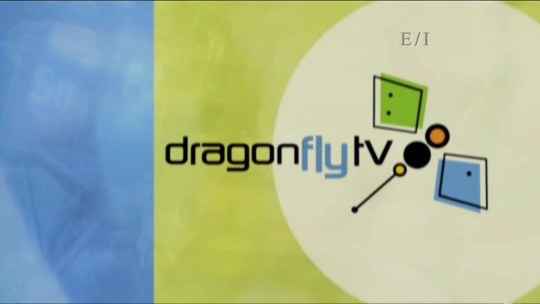
Maya & Miguel
One of the network’s first Hispanic-led shows
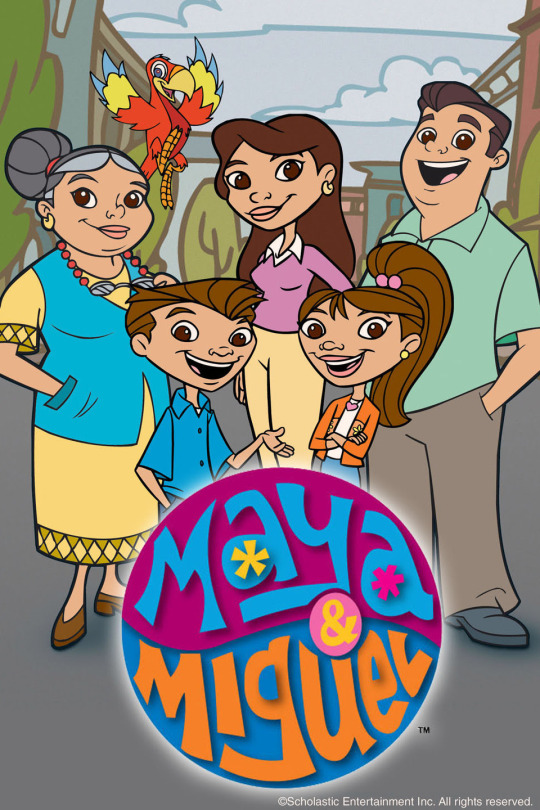
SciGirls
I shouldn’t have to explain what the goal of this one was.
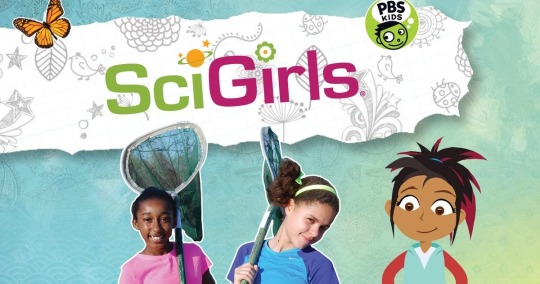
Molly of Denali
When was the last time you saw a show that treated Native Americans as people? Much less a children’s show? 90% of the cast is Athabascan, and the show revolves around Athabascan culture, not shying away from topics like boarding schools and modern-day racism. Most of the writers are also Athabascan, and the show even has an official Gwich’in dub!

It’s this commitment to real, authentic social justice that makes PBS Kids so much different from its competitors. Could you imagine the Paw Patrol dog looking at the camera and earnestly discussing what happened to George Floyd? I don’t think so— but Arthur talked specifically about it, Sesame Street did an hour long special about race in general, and the network itself made a 30 minute special.
youtube
Disney Jr. could never. (Other than trying to teach colorblindness, of course.)
I’m gonna have to cut this into two parts, since I just hit the image limit
5K notes
·
View notes
Text
Here Are My Top 10 Favourite Ants
(Updated due to public outcry and political pressure.)
No. 10 - Yellow Crazy Ants
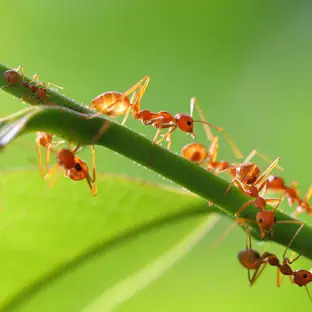
These guys are on a list of "one hundred of the world's worst invasive species" formulated by the International Union for Conservation of Nature (IUCN), having invaded ecosystems from Hawaii to the Seychelles.
But don't hate just because they are awesome at establishing themselves in a new habitat due to their aggression toward other ant species, lack of aggression toward members of their own species, efficient recruitment, and large colony size. Respect the hustle!
No. 9 - Paraponera Clavata

Also known as the "bullet ant," "the one wounding deeply," or "24-hour ant", referring to the full day of pain that follows being stung.
This ant's sting currently ranks the highest of all insect stings on Justin O. Schmidt's informal sting pain index, at 4.0+. Some victims compared the pain to that of being shot, (hence the nickname,) with "waves of burning, throbbing, all-consuming pain that continues unabated for up to 24 hours."
Lymphadenopathy, edema, tachycardia, and fresh blood appearing in human victim feces are common symptoms from even a single sting.
Un-fuck-with-able.
No. 8 - Honeypot Ants

The name honeypot ant comes from the peculiar development of replete workers, whose abdomens become so swollen with food that they are used by the rest of the colony as living food storage. They are "drained" during famine, usually the wintertime, to sustain the colony, leaving them as "flaccid depletes."
Disgusting. 10/10
When a replete worker fills with food, a portion of her digestive tract swells and displaces other abdominal organs. It can expand about four to five times its normal linear dimension when they are fully engorged with food.
I can relate. I have eaten pasta in such quantities to displace my own organs many times.
No. 7 - Red Imported Fire Ants

Though South American in origin, the red imported fire ant has been accidentally introduced to many other parts of the world.
More than 14 million people are stung by them in the United States annually. Most victims experience intense burning and swelling, followed by the formation of sterile pustules, which may remain for several days. Up to 6% of people may suffer from anaphylaxis. More than 80 deaths have been recorded from red imported fire ant attacks.
These ants thrive in urban areas. Nests can be built under pavements and foundations. This means not only can they damage or destroy individual structures, but red imported fire ants can have an affect on broader infrastructure, damaging land, business and property values. In agriculture, they can damage crops and machinery, and threaten pastures. They also pose a threat to animals and livestock, capable of inflicting serious injury or death, especially on young, weak, or sick animals.
With annual damages estimated in the billions of dollars, these ants are considered the second worst thing to arrive on North American soil since 1492.
No. 6 - Black Garden Ants
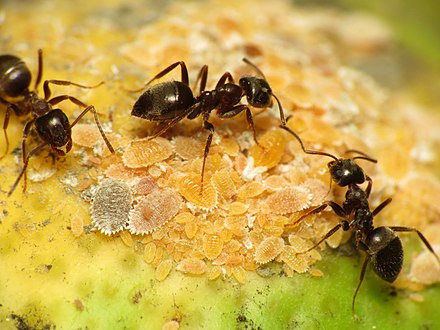
When building their colony, these ants will structure it so as to inhibit the transmission of different contagions. Different communities within the colony are segregated by a limited number of connective nodes, allowing for greater protection of vulnerable hive members, such as larvae and pupae.
A trait I could only wish other species performed so well.
No. 5 - Pharaoh Ants

These ants utilize three types of pheromones. One is a long-lasting attractive chemical that is used to build a trail network. It remains detectable even if the ants do not use the trail for several days.
The second pheromone is also attractive, but will decay to imperceptible amounts in a matter of minutes without reapplication. This pheromone is useful in marking food sources as these are unpredictable and liable to change quickly, so not worth the longer-lasting pheremone.
The third pheromone is a repellant. If an individual finds an unprofitable area with little food or significant danger, it will release this repellant pheromone, which will warn others and cause them to look elsewhere. While positive pheromones indicating lucrative foraging sites are very common in social insects, the pharaoh ant's negative pheromone is highly unusual and pharaoh ants were the first species found to employ such a thing.
No. 4 - Argentine Ant

This species is like the Mr. Worldwide of ants. It has established itself in every continent except Antarctica (including many oceanic islands.)
It even has "supercolonies" that extend across hundreds or thousands of kilometers, first reported in California in 2000, then in Europe in 2002, Japan in 2009, and Australia in 2010.
Several subsequent studies used genetic, behavioral, and chemical analyses to show that supercolonies on separate continents actually represent a single global supercolony.
The researchers stated that the "enormous extent of this population is paralleled only by human society."
How can you not admire (and fear) the ambition and the achievement?
No. 3 - Leafcutter Ants

"Leafcutter ants" is a bit of an umbrella term, as it consists of over 45 ant species, but this gang is just so remarkable. Next to humans, leafcutter ants form some of the largest and most complex animal societies on Earth. They are known for their advanced agricultural practices. These ants are not merely foragers but skilled farmers, cultivating their own food by collecting specific kinds of leaf matter in order to produce specialized fungi in their nests.
No. 2 - Formica Fusca

These ants, (sometimes called silky ants or dusky ants,) are fast to learn, and only a single presentation of stimulus is enough for them to form a genuine long-term memory. This formed memory is also resistant to extinction.
Ants of this species can also detect volatile organic compounds emitted by cancer cells. After a 3-trial conditioning, they can differentiate cancer cell lines from healthy ones. They can also differentiate between at least two different cancerous cell lines.
A similar ability to detect human tumours has been shown in more recent studies.
No. 1 - Weaver Ants
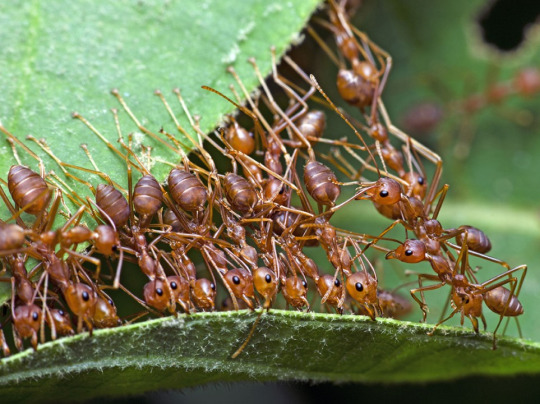
An arboreal species, (i.e. they live in trees,) weaver ants are known for their unique nest building behaviour where workers construct nests by weaving together leaves using larval silk. Colonies can be extremely large consisting of more than a hundred nests spanning numerous trees.
How they sew the leaves together is a remarkable feat of cooperation. Typically, dozens of ants will need to form a chain to first bridge a gap between two leaves, then pull them together so another team can hold them in position whilst yet more ants sew the gap together with silk. But adult ants can't make silk, so they have to use larvae to do it, picking the larvae up and using them like little pots of glue to spin a mat of silk between the two leaves. Altogether, a hundred ants might be involved in the same task. This is a pretty remarkable piece of evolution and a testament to the power of cooperation!

#ants#Myrmecology#bugblr#insectblr#bugs#insects#bug#insect#entomology#ant#antposting#invertebrates#antblr#parasites#parasitism#weaver ant#formica ant#leafcutter#bullet ant#fire ant
238 notes
·
View notes
Text
The Chase Is Half Of The Fun



Word Count: 2.0 K Summary: “You know the drill, officer,” you said with a wink before turning to make your escape. Pairing: S.coups X Reader
Disclaimer: Please be aware that this is apart of the from the ashes series. This series will have aspects of violence, weapons, angst, blood, injuries, killing, and will heavily focus on oppression and segregation of mutants, Look after your mental state if any of these make you uncomfortable please.
Series Masterlist
Navigation
You were known by many names. Some called you a criminal, others, a hero. You didn’t care what they thought, though—your only concern was getting justice for the people who were being forgotten. The corrupt, the greedy, the ones at the top of the food chain, who took and took and never gave back. You took from them, always making sure to give to those who needed it most, the oppressed, the ones left behind by society. You weren’t a saint, but you were doing the world a favor.
It wasn’t easy, but it was your purpose.
And then there was him.
S.Coups, or rather, Choi Seungcheol—law enforcement’s top officer, the one who was always a step behind you, yet somehow never managed to catch you. He wasn’t bad at his job, not by a long shot. He was disciplined, sharp, and incredibly dedicated. But every time you managed to slip through his fingers, there was this fleeting look in his eyes—a look that was more than just duty.
It confused you, at first.
But the more you danced this dangerous game with him, the more you realized that his eyes weren’t just watching you like a criminal. There was something else—something softer, something that made your heart race every time you saw him.
The chase had been going on for months now, and you both knew how it would play out. He’d find you, corner you, and then... let you slip away at the last second. The pattern was becoming all too familiar, and it was driving both of you crazy.
Tonight was no different.
The warehouse was located on the outskirts of the city, a place no one dared to venture to unless they were part of the right circles. It was rumored to be a storage point for some of the highest-ranking criminals' illicit dealings—stolen goods, secret information, and even worse. You couldn’t let that stand.
You’d spent weeks infiltrating their network, gathering intel, and now it was time to make your move. You knew S.Coups would be there, though. You always did. It wasn’t a question of if he’d show up, but when.
You slipped inside the darkened warehouse, moving like a shadow. The guards were easy to deal with, and within minutes, you had access to the secure vault where everything was being stored.
As you worked quickly to get what you needed—documents, files, and money—you could hear the distant sound of footsteps. It was the kind of step you’d learned to recognize by now: heavy, determined, and purposeful.
You smirked.
“You always do this,” a voice called out from behind you, low and steady.
You didn’t flinch, didn’t turn around. Instead, you focused on securing the final bag of money, making sure the weight was perfect for the escape.
“You know I’m not going to let you leave, right?” Seungcheol’s voice was closer now, his footsteps stopping just behind you.
“Of course, you’re not,” you said with a slight smirk, turning to face him. “It’s not fun unless you chase me.”
His eyes narrowed, but there was no anger there—only a resigned amusement. “You make it too easy.”
You tilted your head, your expression teasing. “Am I really that predictable?”
“Yes,” he replied, his tone firm, but there was something softer in his gaze. Something that said he wasn’t as convinced by his own words as he wanted you to believe.
You took a step toward him, your eyes locked on his. “Then why haven’t you caught me yet?”
Seungcheol took a deep breath, his gaze intense. “Because you always know how to slip away. It’s infuriating.”
A flash of something—vulnerability, maybe—passed through his features, but you were already moving, already aware that your time was up.
“You know the drill, officer,” you said with a wink before turning to make your escape.
But as you reached the door, something unexpected happened.
Seungcheol didn’t follow.
Instead, you heard the sound of his footsteps stop completely. You glanced over your shoulder to find him standing still, watching you, his gaze filled with something deeper than just duty.
“Are you really going to leave without a fight this time?” you asked, a bit breathless.
His silence was heavy, but he didn’t stop you. He didn’t arrest you. Instead, his eyes softened, and for a fleeting second, you saw the conflict in them.
“I should arrest you,” he said quietly, his voice strained.
“Then why don’t you?” You were so close to the exit now, the cool night air just beyond the door. But you didn’t want to leave yet. Not with that look in his eyes.
“I can’t,” he admitted, almost too quietly.
You froze, the words hitting you harder than you expected. “What do you mean, you can’t?”
“Because every time you get away, I wonder if I’m doing the right thing,” he confessed, his voice barely above a whisper. “You’re... you’re not a criminal. Not in the way they say. You’re... trying to make things right. But I’m not sure if I can help you.”
His words hung in the air between you both, thick with tension.
You stared at him for a long moment, feeling the weight of his confession. There was no smug grin, no teasing remark—just the raw honesty of a man caught between his duty and his feelings.
Without a word, you turned and walked back toward him. Your movements were slow, deliberate, and you could see the confusion flash in his eyes as you came closer.
You stood in front of him, the space between you shrinking until you could feel the heat of his body. There was no chase now. Just the two of you, standing at the crossroads of right and wrong.
“You know,” you said softly, “I never asked for your help. But I think you’re already helping me just by letting me go.”
Seungcheol’s breath hitched, his gaze softening even more as he met your eyes. “I don’t want to stop you,” he whispered, his hand brushing against yours. “But I can’t just let you keep doing this.”
“You don’t have to,” you replied, your voice barely above a whisper. “Just stop chasing me for a while.”
He didn’t say anything, but the way his hand lingered near yours told you everything you needed to know. It was a truce—a quiet understanding that, for now, there were no winners in this game, only two people standing together in the blurry line between right and wrong.
And maybe, just maybe, that was enough.
Days passed before you found yourself once again in the thick of it. The adrenaline rush of your last heist still lingered, but you couldn’t deny the nagging feeling that stayed with you—the memory of his gaze, soft and full of conflict, had been on your mind since that night.
Your next encounter with Seungcheol wasn’t planned. In fact, you hadn’t expected to see him so soon after your last interaction. But fate, as it often did, had a way of throwing the two of you together when least expected.
It was a simple job—break into a secure building, swipe a few important documents, and get out. But of course, nothing was ever simple with you around.
As you crept through the shadows, your heart skipped a beat when you heard the faint sound of boots on the ground. Your instincts kicked in, and you hid behind a pillar, holding your breath.
Sure enough, the familiar figure of Choi Seungcheol appeared, his sharp eyes scanning the area as he walked with purpose. Your pulse quickened—his presence always did that to you. And you knew that tonight, he wasn’t going to let you slip away as easily as he usually did.
You stepped out from your hiding spot, a smirk spreading across your face as you walked directly toward him.
“Well, well,” you said, your voice dripping with teasing confidence. “I was wondering when you’d show up.”
Seungcheol froze for a split second, his eyes narrowing. “You’re getting bolder, aren’t you?”
“Maybe I like living on the edge,” you replied with a wink, taking a step closer to him. Your gaze locked with his, and you noticed the way his jaw clenched as if he was trying to hold back something—something more than just the desire to catch you.
“You’re not leaving this time,” Seungcheol said, his voice low and firm. But there was something in the way he said it—something that made you doubt if he really meant it.
“Oh, I think I am,” you teased, standing just a few inches away from him now, enjoying the tension that crackled between you. “I’m not so easy to catch, Seungcheol.”
He stepped forward, closing the space between you even more, his body just barely brushing against yours. “I don’t need to catch you,” he murmured, his breath warm against your ear. “Not when I can keep you here, just like this.”
The words sent a shiver down your spine, but you refused to let him see how much his closeness affected you. You raised an eyebrow, meeting his gaze with a challenge. “And how do you plan on doing that, officer?”
Seungcheol’s eyes darkened, and you could see the way he was fighting to keep his composure. His lips parted, but he didn’t speak immediately. Instead, he took a slow step back, his gaze never leaving yours.
“You like playing these games, don’t you?” he asked, his voice quieter now, the edge of frustration seeping in. “But at some point, this is going to stop being fun. And when it does, I don’t know if I’ll be able to let you go.”
Your heart skipped a beat, and for a moment, the playful mask you wore slipped. The seriousness in his tone, mixed with the heat in his eyes, made you feel something you hadn’t expected. The mission. The chase. It all seemed so far away in that moment. It was just the two of you now, standing in the middle of this tension-filled game that neither of you seemed willing to back down from.
“I’m not the one who’s going to get caught, Seungcheol,” you whispered, your voice softening. You took a step closer, closing the distance again, the tension between you thick enough to cut with a knife.
“You’re right,” he replied, his voice low and almost intimate. “You’re always one step ahead of me. But one of these days…” His hand brushed against your arm, a subtle touch, but it sent a jolt through your body. “One of these days, you won’t be able to slip away.”
You tilted your head, your eyes flicking to his lips. “Is that a promise, officer?”
A smirk tugged at the corner of his mouth, and his gaze dipped down to your lips as well. The air between you felt charged, the heat of the moment rising.
“Maybe,” he said, his voice barely audible. “But don’t get too cocky. The next time we meet, I’m not letting you go without a fight.”
The challenge in his words was clear, but so was the underlying tension—the attraction that neither of you had been able to ignore for so long.
Before you could say anything else, Seungcheol stepped back, turning his attention to the mission at hand. But there was a lingering look in his eyes, one that told you this game wasn’t over yet. He was letting you go again, but not without that silent promise.
You watched him for a moment longer before stepping back into the shadows, a smirk crossing your face.
“I’ll be waiting, officer,” you called over your shoulder, your voice laced with both playfulness and challenge.
As you slipped out of the building, you couldn’t help but wonder—just how far would Seungcheol go to catch you? And more importantly... how long would you both keep playing this dangerous game of cat and mouse?
The next encounter was already in your mind. And this time, you weren’t going to make it easy on him.
#Fromtheashesseries#seventeen reactions#seventeen headcanons#seventeen imagines#seventeen scenarios#seventeen smut#seventeen x reader#svt smut#seventeen#seventeen fluff#svt imagines#seventeen fanfic#svt fanfic#svt x reader#seungcheol smut#seungcheol imagines#seungcheol fanfic#seungcheol x reader#seungcheol x you#seungcheol#scoups smut#scoups x reader#scoups x you#scoups x y/n#choi seungcheol#seventeen seungcheol#seungcheol fluff#scoups#choi seungcheol fluff#choi seungcheol imagines
82 notes
·
View notes
Text
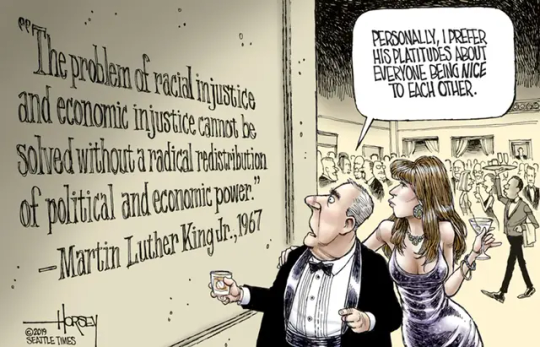
MLK at 95.
January 15, 2024
ROBERT B. HUBBELL
Martin Luther King, Jr. was born 95 years ago on January 15, 1929. As a Baptist minister, he advocated non-violence while promoting civil rights. He spoke for the poor, the oppressed, and the disenfranchised. While he was imprisoned in a Birmingham jail for protesting segregation, he responded to eight white ministers who had criticized him for participating in protests that they described as “unwise and untimely.”
Dr. King’s famous reply to the white ministers explained why he traveled to Birmingham from Atlanta to protest:
I cannot sit idly by in Atlanta and not be concerned about what happens in Birmingham. Injustice anywhere is a threat to justice everywhere. We are caught in an inescapable network of mutuality, tied in a single garment of destiny. Whatever affects one directly affects all indirectly. Never again can we afford to live with the narrow, provincial outside agitator" idea. Anyone who lives inside the United States can never be considered an outsider.
While Dr. King was keenly aware of the racism that served as the understructure of the Christian church in the old South, he would be shocked by the virulent, mean-spirited, anti-Christian message that animates many (not all) evangelical congregations in America today. They form the backbone of Donald Trump's support in Iowa and beyond. They have adopted Trump's message that treats the poor, oppressed, and disenfranchised as “outsiders” and “others” who do not belong in America.
Over the last several days, we have learned that members of the Texas National Guard physically blocked federal Border Patrol agents from responding to reports of immigrants in distress in the Rio Grande. The bodies of a mother and two children were later recovered from the river in the area where immigrants were reported to be in distress.
Texas, of course, denies that its cruel actions caused the drownings—a denial that should be viewed skeptically from a state whose governor—Greg Abbott—recently commented Texas troopers could not shoot immigrants crossing the border because the troopers would be charged with murder by the Biden administration. Texas governor criticized after comment about shooting migrants | The Texas Tribune.
Similar animus underlies the recent comments of Mississippi Governor Tate Reeves, who withdrew Mississippi from a federal program to provide food to school children during summer breaks. Governor Reeves said Mississippi withdrew from the program to fight “attempts to expand the welfare state.”
Blocking efforts to rescue a drowning mother and her children? Regretting the inability to shoot immigrants because it would be murder? Denying food to poor children out of spite? Who are these people? How do they look at themselves in the mirror?
Ninety-five years after Dr. King’s birth and fifty-five years after his death, it is difficult to believe that people who identify as upstanding members of the Christian church can support such actions.
Another section from Dr. King’s Letter from a Birmingham Jail is relevant to this moment in our nation’s history:
But the judgment of God is upon the church as never before. If the church of today does not recapture the sacrificial spirit of the early church, it will lose its authentic ring, forfeit the loyalty of millions, and be dismissed as an irrelevant social club with no meaning for the twentieth century. I meet young people every day whose disappointment with the church has risen to outright disgust.
Dr. King’s words were prophetic. See Pew Research (10/17/19) In U.S., Decline of Christianity Continues at Rapid Pace.
And, of course, as Dr. King recognized, “there are some notable exceptions” among church leaders who supported his work—just as there are exceptions today. Several readers have recommended Faithful America as an antidote to Christian nationalism. The organization’s helpful FAQ page explains why “Christian nationalism” is not Christian. See Resisting Christian Nationalism: FAQ + Resources | Faithful America.
On this day commemorating Dr. Martin Luther King Jr.’s birth, we can see how far we have come—and how much further we must go. He didn’t despair. Neither should we.
Robert B. Hubbell Newsletter
#MLK#David Horsey#political cartoons#Martin Luther King Jr#justice#equality#economic equality#Robert B. Hubbell#Robert b. Hubbell newsletter
524 notes
·
View notes
Text
Monday Musings: Igneous Plumbing Systems
Volcanic igneous plumbing systems or VIPS are interconnected channels and chambers that magma travels through and is stored in. Generating VIPS starts with partial melting. Partial melting is dependent on temperature, pressure, flux addition, and composition of the source rock. The magma then migrates out of its source region by the process of segregation and extraction.

Segregation is the separation of melt from its source rock through gravitational compaction. When the source rock experiences compaction, minerals start to melt at grain boundaries. Melt droplets then build up and connect into melt pools until they are being extracted. There are two end members of melt extraction: melt can be extracted in pulses if the development of magma channels are rapid and the network is highly interconnected, or melt can be constantly drained from the source if the magma channels are developed in a continuous and steady manner.

Extraction controls the chemical composition of the melt, the amount transported and the volume contained in plutons. For instance, if the magma channels are not well connected, the source may not be drained successfully, and dykes may freeze before propagating far enough to feed plutons. If the source rock could not initiate dyke ascent with sufficient melt, the source rock may remain undrained, favoring diapiric ascent of the source rock.

What is a diapir? It forms when a blob of hot, ductile magma ascends through brittle overlying rocks. It is the main mechanism of magma transport from the lower to middle crust. Diapirs are often fed by a series of dykes and sills.

When magma stops ascending, a magma reservoir is formed. The kind of reservoir is determined by the depth and geometry. Emplacement in the lower crust are classified as plutons. Thickness can range from one km to tens of km and is more than the length of the reservoir. It takes 100,000 to 6 million years to form.
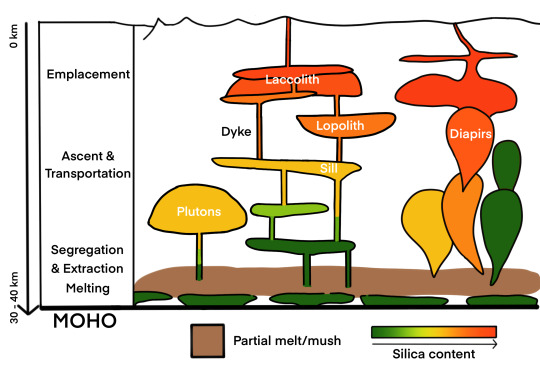
Emplacement in the middle to upper crust are sills. These are sheet intrusions that normally are emplaced at least 3km below the surface. When sills become stacked, the form a dome shaped structure known as a laccolith.
Thanks for coming to today’s lesson! Tune in tomorrow one last igneous trivia! Fossilize you later!

37 notes
·
View notes
Text
The Importance of Network Segregation in Cybersecurity: Protecting Your Digital Assets
In today's digital age, where businesses rely heavily on interconnected networks to operate efficiently, cybersecurity has become a paramount concern. With the ever-growing threat landscape, organizations must adopt robust measures to safeguard their sensitive data and assets. One such essential strategy is network segregation, a proactive approach that involves dividing networks into distinct segments to minimize the impact of security breaches and unauthorized access. This article delves into the significance of network segregation in cybersecurity and its role in protecting valuable digital assets.
Understanding Network Segregation
Network segregation, also known as network segmentation, involves dividing a computer network into smaller subnetworks or segments. Each segment is isolated from others, creating barriers that restrict the lateral movement of cyber threats across the network. Segregation can be implemented using various techniques, including VLANs (Virtual Local Area Networks), subnets, firewalls, and access controls.
Enhancing Security Posture
Network segregation serves as a crucial component of a comprehensive cybersecurity strategy, offering several benefits that enhance an organization's security posture.
1. Limiting Attack Surface
By segmenting the network, organizations can limit the attack surface available to potential intruders. Even if one segment is compromised, the damage can be contained, preventing attackers from accessing the entire network. This containment reduces the risk of data breaches and minimizes the impact of cyberattacks.
2. Containing Lateral Movement
One of the primary objectives of cyber attackers is to move laterally across a network to escalate privileges and access sensitive data. Network segregation impedes this lateral movement by creating barriers between network segments. Even if an attacker gains access to one segment, they are restricted from moving freely within the network, making it more challenging to carry out their malicious activities.
3. Protecting Critical Assets
By segregating networks, organizations can prioritize the protection of critical assets and resources. High-value assets, such as servers containing sensitive data or proprietary information, can be placed in separate segments with stricter access controls and monitoring mechanisms. This targeted approach ensures that essential assets are safeguarded against unauthorized access and cyber threats.
4. Compliance Requirements
Many industries, such as healthcare, finance, and government, are subject to regulatory requirements regarding data protection and privacy. Network segregation helps organizations achieve compliance with these regulations by implementing measures to secure sensitive information. By demonstrating effective segmentation and access controls, businesses can meet the stringent requirements outlined by regulatory bodies and avoid potential fines or penalties for non-compliance.
Implementing Effective Segregation
To reap the benefits of network segregation, organizations must implement it effectively, taking into account various factors and best practices.
1. Identify Segmentation Requirements
Before implementing network segregation, organizations should conduct a thorough assessment of their network infrastructure and identify segmentation requirements based on factors such as data sensitivity, user roles, and business processes. Understanding these requirements allows organizations to design an effective segmentation strategy tailored to their specific needs.
2. Define Access Controls
Access controls play a crucial role in network segregation by regulating the flow of traffic between network segments. Organizations should define granular access controls based on the principle of least privilege, ensuring that users and devices only have access to the resources necessary for their roles and responsibilities. This limits the potential impact of security breaches and unauthorized access attempts.
3. Monitor and Maintain Segregation
Network segregation is not a one-time task but an ongoing process that requires regular monitoring and maintenance. Organizations should implement robust monitoring tools and processes to detect any anomalies or unauthorized activities within network segments. Additionally, regular audits and reviews should be conducted to ensure that segregation policies are effectively enforced and aligned with evolving security requirements.
Conclusion
In an increasingly interconnected digital landscape, network segregation emerges as a critical cybersecurity measure for protecting valuable digital assets. By dividing networks into smaller segments and implementing robust access controls, organizations can limit the attack surface, contain lateral movement, and safeguard critical assets from cyber threats. As cyberattacks continue to evolve in sophistication and frequency, investing in network segregation is imperative for organizations seeking to bolster their security posture and mitigate the risks associated with today's cyber threats.
0 notes
Text
The Zoot Suit in Black Culture
In today's history lesson, we will discuss the vintage zoot suit, a men's suit with high-waisted, wide-legged, tight-cuffed, pegged trousers, and a long coat with wide lapels and wide padded shoulders.
The Chitlin Circuit (during the era of US racial segregation) was a network of clubs, theaters, and other venues where Black entertainers were allowed to perform, as defined by the Oxford Dictionary. These hotspots had comedy shows where entertainers such as Pigmeat Markham would dress up in baggy suits as part of their routine. This took place in the 1920s, eventually giving way to the more flamboyant, stylish and colorful zoot suit.
Born out of the inner city ghettos and African-American creativity, the suits were first associated with cities such as Harlem, Detroit and Chicago in the 30's. Musicians helped popularize the suit with a more tailored distinguished look, Cab Calloway, an American entertainer, famously wore the zoot suit in the movie, Stormy Weather (1943). Jazz and Jump Blues were all the rage back then and you could spot these suits at the dance halls.

“The zoot was not a costume or uniform from the world of entertainment. It came right off the street and out of the ghetto.” -Harold C. Fox, a Chicago clothier
According to Cab Calloway's Cat-ologue: A "Hepster's" Dictionary (1938), he called the zoot suit "the ultimate in clothes. The only totally and truly American civilian suit."


It was the signature look of the African-American subculture of Hepcats. A young Malcolm X could be seen wearing one. Dancers to businessmen to singers to instrumentalists, all dressed in zoots. It wasn't just about making a fashion statement, but a sense of cultural pride.
The look picked up in other communities such as the Mexicans, Filipinos, Japanese etc... forming their subcultures respectively.

On June 3, 1943, a string of attacks against Mexican-Americans started in Downtown Los Angeles, CA. Approximately 11 sailors got into a heated confrontation with some young Mexican-Americans and proceeded to assault them. The next day, hundreds of sailors traveled to a predominantly Mexican-American settlement in East Los Angeles and began another assault. Harassing anyone who wore a zoot suit, making them strip and burning their clothes. White residents and servicemen used the excuse that the zoots weren't "patriotic" due to it containing large amounts of fabric. This is during World War II were rationing food and fabrics were seen as necessary. This vicious and violent behavior spread to different cities leaving nothing, but devastation and trauma in its wake. These were known as the infamous Zoot Suit Riots of 1943.
Source 1 Source 2 Source 3 Source 4
#zoot suit#black history#black tumblr#black art#black women#theafroamericaine#black fashion#black hair#black culture#black girls of tumblr#nostalgia#Culture#african american#african history#vintage photography#cab calloway#art style#style#Mexican#history#writers on tumblr#writing#Detroit#america#north america#american history#california#black men#black community#melanin
75 notes
·
View notes
Note
i, meanwhile, am extremely qualified to comment on the "closeted gay fascist getting off going around dressing up as the KKK"!
i think making Hooded Justice Will Reeves — a gay black man — (or even just *not believing Hollis that HJ is a Nazi*) strengthens the good aspects of Moore's original critique and by and large negates the skeevy and homophobic and outright nonsensical aspects. Will Reeves getting caught up in this fashy white bougie lark as you discuss and then getting much less out of it is a much more interesting commentary on the pressures behind respectability politics than the original milquetoast and frankly, beneath Moore's usual calibre, genteel scoffing at the uncouthness of the fascist perverts. Moore in general has a problem with treating queer men as though we're straight men with a weird kink and as though there's *no* wrinkles in white queer men's identification with white supremacy, as though homosocial and gay relationships have not been threatening to the British class system or to racial segregation.
so it also makes Captain Metropolis less boring, too — even in the 80s, the world didn't really need another surface-level "Burrows-style bougie gay respectability is Bad" critique that didn't even go anywhere interesting. Metropolis's position is such that he needs to overtly compensate by doubling down on supporting the rotten and immoral system. okay. but holy shit, isn't there anything to be said beyond that?
i think ultimately that Moore's weird takes on gay men aren't intentional critiques of male homosexuality but a personal oversight, since in the original Watchmen, as Laurie and Dan slowly wind their way towards giving it all up for the sake of love and a quiet anonymous life, they're shadowed by the memory of and possibly by the literal still-living HJ and Captain Metropolis. idk how popular that theory is these days, that HJ and Metropolis ditched the masks to elope and be normal and grow old together, but part of it hinges on the fact we see an old gay couple behind Laurie and Dan at one point, who look an awful lot like they're meant to be HJ and Metropolis. and if the two of them escaped the stifling white upper-class vigilante networks, it's ... frankly a lot more compelling if their positions in the upper echelons of society were insecure *because* at any time, they could be rumbled as, in their private lives at least, not going with the program.
but even if we agree with Hollis in his understanding of HJ, there's still the fact that, *if* we read HJ and Metropolis as legging it for the hills together, it's not straight sex that saves Laurie and Dan, it's love, it's genuine affinity and connection and care *and* they're not the first ones to escape through that.
(the reason i think that this read alone doesn't make Metropolis much more interesting is my personal exhaustion with white queer complicity with white supremacy and so two racist Respectable White Queer Men In Suits escaping together is less compelling to me)
(using Queer Men here in the sense that William S. Burroughs et al self-identified as, what in the 00s was still acceptable to call "straight-acting" and currently doesn't have a specific term as far as i'm aware)
still sucks to be Rorschach, of course, but he's the cosmic butt of the joke in Watchmen in the end
Thanks for weighing in, appreciate the perspective
22 notes
·
View notes
Text
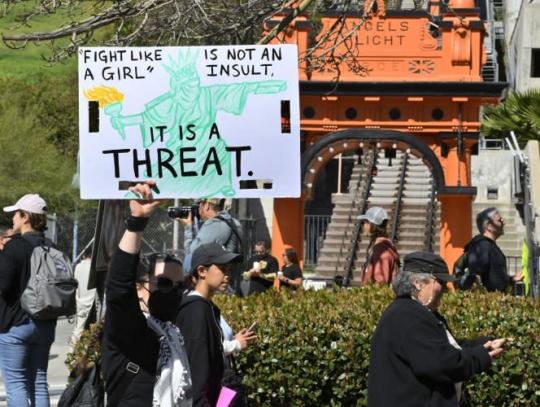

So look y'all, I'm a big fan of put your money where your mouth is. Top photo is me at the Women's March in DTLA in the morning, Saturday March 8th. Bottom photo is me (now in a safety vest) helping organize the Refuse Fascism for Women & Queer Rights march in WEHO that afternoon.
I also spoke at the later march. No footage has surfaced, but I wanted to share what I said there as folks present said it really resonated with and impacted them. It's not exact, as I adlibbed a bit on the day, but the full planned speech is here below:
--------------
Before I moved out here, I was the co-founder, director, and a performer in an all femme singing, sword-fighting, and comedy show that performed nationally at Renaissance Festivals, which I half-joking, half-seriously called my “roving feminist ministry.” The joke was born out of the fact that I am a theologian and former chaplain with a Bachelors of Christianity and a Masters of Divinity. Though I am no longer religious, that religious training radicalized me and is the reason why, though I have shifted to the arts full time, I work to provide entertainment with a purpose; that engages minds as well as hearts and creates community. And that training not only prepared me for, but crystalized an internal mandate to be an activist for women’s rights, queer rights, anti-racism in all forms, anti-semitism, and pro-liberation of all people.
A large part of my education for both degrees was focused on study of the Holocaust or Shoah and is why I say with absolute confidence that we are staring down the barrel of full-blown fascism in this country. It is a present and active threat and without mobilization of the masses, it will destroy us.
When we talk about the Holocaust, we talk about 4 categories of people: victims, perpetrators, rescuers / resisters, and BYSTANDERS.
When we think about the Holocaust in present day or the Civil Rights movement, we often mythologize ourselves and place ourselves automatically into the hero position: rescuers and resisters. But in reality the bystander effect is SO strong. Just by being here today, you are taking a step past being a bystander. I applaud you so much for that!
But I need you to leave here, not just patting yourself on the back for being here, but considering next steps for active resistance. If protesting is your thing, get connected to folks here today, follow Refuse Fascism and keep up to date on future protests, seek out other protest networks here in LA and be present as often as possible - because the fight is on many fronts and they are ALL connected: queer rights, women's rights, health care, climate change, immigrant rights, financial inequality, workers rights, free Palestine / Congo / Sudan, stop AAPI hate, Black Lives Matter, anti-Semitism, the list is endless. We cannot individually be present for all of them, but you are needed in all of them. Pick your cause and get active in every way you can.
But also, prioritize. Right now, we can see the first targets of this administration are Immigrants and the Transgender community. Women shortly following. But following. We must bolster and protect those first dominoes or we will all fall.
Another point I wanted to make today was to remind, or possibly inform everyone. While the Holocaust is usually our go-to reference point for fascism, it was not born out of nothing. In fact, Hitler and his cronies took notes from America - from our Jim Crow laws and extreme racial segregation. Our current free fall is not following someone else’s pattern, it is a return to our roots. We are not following someone else’s model, we are the mold.
My fellow white women - I want to remind us in particular that we have, historically, been the shield of white supremacy. We are the oft-cited reason for oppression and racial hatred. White men argue that we must be protected from hated minorities. It is our safety they cry for as they ban transgender people from the simple human right of bathroom access. And it is our tears that have sent hundreds - if not thousands - to the gallows and strange-fruit bearing trees. Our legacy is a river of lynched blood. Therefore, it is our duty and obligation to put our supposedly precious bodies on the front lines as needed. Find and follow leaders of color, first and foremost, but when needed, be the true shield covering those who are under attack. To use a colloquium, we must use our Karen powers for good.
What I want to leave you with is a reminder that resistance is as old as the evil we face. And I want to speak to the legacy of resisters who came before us in the hopes that we will follow their model and break the mold.
This is by no means an exhaustive list, as I said before, the fight is on many fronts, but we have in this country seen resisters in all of them:
Revolutionaries - who fought for the democracy we must now protect Abolitionists - who fought for the end to slavery. Sufferists - who fought for voting rights for people of all genders and all races. Civil Rights Activists - who fought for and continue to fight for equality for people of all races, rights, creeds, abilities, genders, and sexualities. Feminists and Womanists - Here I want to remember Alice Walker who coined the term “Womanism” and said: “Womanist is to feminist as purple is to lavender.” Feminism too often perpetuates white supremacy by focusing on white womens rights and agency. Womanism reminds us to recenter the conversation through the experience of Black women and women of color. We must reject racial blindness and remember to note all the intersections of identity in the struggle.
Remember also Marsha P. Johnson - a self-proclaimed “gay, a transvestite, and a queen.” She is an icon of Stonewall and the gay rights movement of the 60s. Of Pride, she said: “As Long as gay people don’t have their rights all across America, there’s no reason for celebration.”
And also Sylvia Rivera who cofounded with Marsha STAR: Street Transvestite Action Revolutionaries. Her advocacy extended beyond queer struggles to the intersections of poverty and racial discrimination. She spoke to the necessity of allies in the Stonewall riots saying: “We also have to remember one thing: that it was just not the gay community and the street queens that really escalated this riot — it was also the help of the many radical straight men and women that lived in the Village at that time, that knew the struggle of the gay community and the trans community. So the crowds did swell.” Our crowds must swell.
When we stand together, when we make good trouble in these streets, when we shout and cry and riot for our rights, we will break the mold and win the world we deserve. In the name of humanity, we refuse to accept a fascist America!
----------------
Y'all, the timeline is shortening EVERY DAY. If you're an American, distressed by the news, I need you to get active in helping stop it - HOWEVER you are able. Phone calls to your reps, attending town halls and council meetings, protesting, info sharing, simply donating to folks doing the more active work... any of it, all of it is helpful and needed.
#sorry no read more bar#I'm hoping going without may mean more people take the time to read it#resist#resistance#america#american#womens rights#queer rights
46 notes
·
View notes
Note
hey, gentile here. just came across this post of yours and, first of all- it's SUPERB. it showed me a perspective on being a jewish ally that i really wouldn't ever have considered by myself, made me more confident in my choice to put combating jew-hatred above the friendships I've recently lost, and gave me a really useful direction on where to go as an ally to jewish people onwards. that being said, there's a few details about it I'd like to press you about, if it's not too much trouble.
this point is probably worthy of an eyeroll as i'm a culturally christian atheist (making a concious effort to not be *that* kind of atheist), but: when you refer to G-d as the creator of all things, you stress that that includes evil- but that, in so doing, G-d is not evil themself. now, I'm asking this with the express purpose of you correcting me, so: why does this G-d- as a G-d fundamentally distinct from the Christian conception of God as a Super-Mega-Ultra-Perfect God Who Can Do No Wrong Ever- create evil? i, personally, have been led to believe by @/spacelazarwolf that it is simply because G-d, too, makes mistakes just like any human being, but the way you worded it in this paragraph (which I've included as a screenshot below) had me interpret G-d creating evil as a concious, intentional action. did i just not read it correctly? and, if i didn't, then is the reason G-d creates evil part of this central struggle you went in detail into in the same paragraph, and as such, a very individual part of Jewish belief that no two jews agree on? and if that is so, would you be comfortable with sharing your version of it?
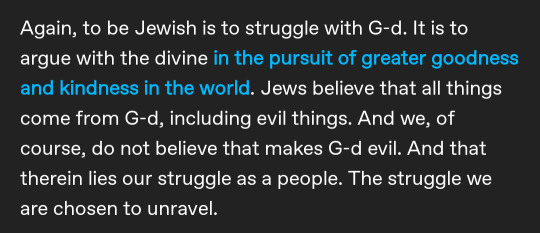
a few paragraphs after that one, you dedicated many words to make it absolutely crystal clear that, in the process of unlearning and combating jew-hatred in the society around me, i should, in spite of the vitriol that they propagate, love the former friends i lost to antisemitism. how- and *why* should i love the people who, on an early october 8th morning, actively celebrated the news of a massacre of Israeli civilians? who mocked- and still mock- the survivors and the families of hostages? who wield the memory of the holocaust as a baton against Jewish people's right to self defense? who deify terror groups who are up to their necks in atrocities? who make an active effort to spit on the face of *reality?* How could i possibly look at the face of a friend who chose allegiance to a terrorist group she did not even know existed four months ago over me- who she had actively interacted with for much longer?
would you rather we called ourselves "gentiles" or "goyim?" I've been calling myself a gentile for the longest time because i see jamming a word from a language i don't speak at all in an otherwise english sentence to be disrespectful and constitute appropriation, but you and other jumblr blogs have given me the impression that that is not the case. furthermore- i believe it was @/bambahalva who pointed out the usage of the word "gentile" in antisemitic segregation policies.
that is all- i hope this message finds you well. oh, yeah one more thing- what do you think of The Forward news network? i came across them by chance and next thing i knew I'd gotten into their newsletter.
WARNING: I HAVE FINISHED WRITING THIS AND IT'S LONGER THAN I EXPECTED AND ALSO MORE JEWISH THAN I EXPECTED LOL! I have done the most Jewish possible thing I could do and answered all of your questions with questions. I'm sorrryyyyyy! This is what happens when you grow up surrounded by rabbis and future rabbis! LMAOO
Oooh! What a good ask! I love this ask. OK, so! Let's go in order.
First of all, thank you so much for your kind words. And thanking you for backing your words with the action of prioritizing kindness over hatred. It matters. More than I can ever explain. Thank you.
You know, it's funny. People ask me a lot of questions about i/p that they think will have simple and straightforward answers that just don't. And I end up writing a lot of essays because of this. The questions you wrote me seem like they should be complex, but feel relatively straightforward to me.
Now, to your first bullet point: I don't know. I truly do not know. I think that G-d is fundamentally just...G-d, and in so being, G-d is truly unknowable to me. I think many Jews have many different interpretations on why G-d creates evil. I'm no rabbi, but one of my BFFs is and so is her mother and great grandfather. That doesn't give me any kind of authority. It just means I've spent a lot of time thinking about theological questions like this. As for my perspective, I'm a progressive/reform Jew, not a humanistic Jew. I do actually believe in G-d, but I vibe with the community philosophies of Humanistic Judaism a lot. So that's the perspective I'm coming from here:
I'm not a particular fan of the Book of Job, because I think it gets twisted and interpreted in Christian ways more than most Hebrew books and it can too easily be twisted into a "Don't question G-d, because G-d is perfect" narrative that I find to be fundamentally at odds with how I practice Judaism. Also, it's just a very sad story about how a good and kind man lost everything, and it makes me sad to think about. HOWEVER, that traditional "Don't question G-d" narrative is not how I learned to think about that book. The way I learned it, I believe the Book of Job describes this issue most explicitly. After Job loses everything he holds dear and talks to all his friends and begs again and again "Why? Why did G-d do this to me? Why would G-d do this to me when I'm a good person?" And basically G-d hears everyone answering for G-d with various reasons, "Maybe you were bad." "Maybe you should make an offering" Maybe this. Maybe that. And eventually G-d responds from within a storm (paraphrased of course) 'Why the fuck do you think it's your business to know? I made the whole universe! I made everything you see. I made the world that gave you your family in your first place. Why do you think you get to question my motives?'
The way I always interpreted that is: I don't fricking know! It's not really my business. What am I gonna do? Stop G-d? How does my knowing why G-d creates evil help anything? It doesn't mean we don't question G-d. It means we should instead focus on what we CAN control. I can't make 10/7/2023 not happen any more than I could stop The Holocaust or form an ocean. That's divine business, not human business. What I CAN do is make the world better now. What use is it challenging things that we cannot change? Things that are in the past? What's the point of asking why bad things happen when we can instead focus on stopping more bad things from happening. G-d named us his people when Abraham fought with G-d to stop the destruction of Sodom and Gomorrah. Abraham repeatedly asked, "But are you sure? But what if there are 100 good people? 50 good people? 10 good people?" And G-d kept responding, basically, 'I mean, there aren't. I know this cuz of how I'm G-d and know all the things. But knock yourself out looking.' My interpretation of this was that G-d doesn't get mad when we do our utmost to help our fellow human beings. G-d gets mad when we waste our energy that we could be using to help our fellow man to instead be angry and rage futilely against the past. I say this as someone with PTSD as someone who attempted to stop a tragedy from occuring and failed and can never understand why. What informs my trauma and what makes it so hard to get past isn't that G-d allowed it to happen. It's that people did. It's that I begged for help before it happened--over and over and over to dozens of adults in various positions of authority in order to prevent this terrible thing from happening (no, I will not now or ever disclose what that thing is). And all the people who could have helped failed me, and now two people are dead. Because someone did an evil, evil thing. And a bunch of other people let it happen. I'm not mad at G-d. I'm mad at people. And yet, I also know that hating people and finding reasons to dismiss them and despise them is what leads to more tragedies like that happening. So, despite my rage, truly the only thing to do is to love people. It's the only that helps. It's the only thing that repairs the world. It's the only thing that we can control. So, in short, my answer to "Why does G-d create evil?" is "Why should I spend my valuable time on earth trying to answer that question when, instead, I can spend that same exact amount of time asking millions of people, 'How can I help? What's wrong, and how can I help make any part of it better?'?" We don't need to understand G-d to make the world a better place. I'm fine leaving G-d stuff to G-d and spending my time on the human stuff.
Now, your second bullet point. Love their souls. You don't have to love what they've done. But they are human beings, as are we all. I think this can also easily be twisted into the Christian framework of "Hate the sin, love the sinner," but that's not what I mean at all. People's evil deeds are a part of them. They need to take responsibility. There is no divine absolution for crimes that people do unto each other in Judaism. If you harm a person, G-d cannot forgive you for that. Only the person or people you harmed can forgive you. And to a certain degree, we are all defined by our actions toward others. And so, no. I do not forgive the terrorists who woke up and decided to kill a bunch of Israelis and Israeli-adjacent humans. I do not forgive those who celebrate the deaths of Israelis because of some misguided sense of justice. I do not forgive the people who continue to send me hatred and death threats day after day after day after day. And I do not love the parts of them that did and do those horrible, unforgivable things. But my goodness. They were babies once. They either had parents who love(d) them, which is so sad, because they have this life of love and they chose instead to fill it with so much hate. Or they didn't have any parents or loved ones or anyone to guide them and, my goodness. That is so sad. How terrifying and alone that must feel. Maybe they have friends and family who love them and are instead wasting their precious time on this planet directing their energy at raging against me and 15 million other Jews they've never met. Or maybe they don't have anyone who loves them and they think that hating me and harming me will bring them some sense of purpose and joy. What a horrid way to live.
My Grandpa died last year. I have a wonderful family for whom I'm very grateful, and I even have good memories with my Grandpa. But he was not a good person. He came from an abusive home, and weaponized that abuse on his loved ones until he drove them all away. He was a narcissist. Not in the pop psychology sense. But in the actual clinical sense. He ruined every relationship that ever mattered to him--personal and professional. And in the end, because of his own actions, he died alone. He had pushed everyone so far (often with legal threats and action) that when he died, he laid on a slab for weeks because nobody could figure out who to call, because he had no one left. (For reference, Jewish burials are supposed to happen rather quickly and two weeks is...not good.) He was the only person in his generation who was not born in Israel--my family on his side has lived in Israel since looooong before even the British Mandate and he was the only person in his family born and raised in the US. As far as we can tell, the family on that side has been in Israel for as long as Jews have existed. He was religious. And while I've never been to Israel or met any of my family there, he did go. And he kept in touch with his relatives there before driving them away too. He was a wealthy man, but convinced himself that everyone only wanted him for his money and then decided to horde it instead. He left nothing to his children or to me. He left all his money in an endowment to his university--a place that uses that money to fund anti-Israel organizations now. He died alone, without his family that lived nearby, and with a legacy that will now cause active harm to the family that lived far away. He could have died surrounded by the loved ones from around the world who wanted nothing more than to be near him and loved by him. His story is a tragedy. The story of every person who chooses hatred over love is a tragedy. The story of someone who woke up and chose to murder others or to delight in the death of others is a tragedy. I love the soul in the center of these people. I loved my grandfather. I could not be around him. I cannot forgive some of the things he said and did. But I love the person he could have been. I love the part of him that gave me some good memories. I love the family he gave to me.
No, we do not all need to love or forgive those who have wronged us or terrorized us or murdered our loved ones. But that is different from mourning a human soul. From loving the potential of a human soul to do good in the world, and mourning the loss of that soul and its potential. Every human being--every single one no matter what they have done in their lives--has the potential to create goodness and make the world a better place. Every moment of every single day is a new chance to meet that challenge and do our best. Sure, not all of us have it in us to try our best every single moment. Sometimes life is hard and we're sad and tired and hungry and angry. And that's ok, because we have tomorrow, and an hour from now, and a minute from now. But the moment someone chooses to take action and decides that action should be to cause another harm or celebrate the harm that was caused? That's a tragedy. And when a life is extinguished, that is a life that loses its potential to try again and do better. We shouldn't love people because we deem them worthy of love. We should love people because they are people. And so are we. And how wonderful is that? I could choose to hate them. It would be so easy! But why should I do that? What do I gain? What do they gain? And isn't it so wonderful that I chose to love instead? And isn't it so wonderful that you can, too?
As for your final bullet point: I have no preference. I say goyim cuz it's easier for me. Goy/gentile/non-Jew are all fine to me. I have some icky feelings about the word gentile for a variety of linguistic reasons I won't bore you with. But some other people don't like when non-Jews appropriate Yiddish words. Others (including me) find it wonderful when non-Jews call themselves goyim. All my closest non-Jewish people call themselves goyim, including my sister! Non-jew is the most neutral in English and least likely to offend anyone. But it still separates Jews as an other whereas "goy" is a way to distinguishing yourself from Jews while also being an acknowledgment of our culture. As far as I'm concerned as long as a goy is being a goy (ally, positive) rather than a goy (derogatory) I don't mind that they call themselves goyim. LOL! Idk, friend. Do what makes you happy! What do you prefer?!
Regarding The Forward news network: They are a reliable Left-Center source with a high credibility and reporting rating and only one failed fact check in the past five years for which they issued a correction. I would consider them a reliable source. They cover legitimate issues of people who support Palestinan self-determination ostensibly being punished for their stances. They publish Op-eds critical of Netanyahu, who is terrible. And they address how antisemitism is harming diaspora Jews. They seem to consistently emphasize the humanity of everyone, which you can tell based on the rest of my post is very important to me, but they also avoid over-editorializing on news that is not in the Op-Ed section. I'll never endorse any source as perfect or guaranteed to be free of problems or harm or bad takes, but they do seem to make a genuine effort to be factual, clear, and wholly truthful. Note: I highly recommend that everyone installs the Media Bias/Fact Check extension on their web browsers. Get in the habit of checking and evaluating sources critically. It's a skill that will serve you your whole life.
@clawdia-houyhnhnm I hope this helps. And thank you for your thoughtful ask and commitment to intercultural understanding. <3
#ask me stuff#clawdia-houyhnhnm#leftist antisemitism#antisemitism#jewish muslim solidarity#jewish goyim solidarity#Judaism#jewish culture#jumblr#how to help#allyship#media literacy
155 notes
·
View notes
Note
Hi! Can I request a Lancelot x Depressed Luz! Reader? Lancelot can’t read her thoughts and wants to help but reader is too traumatized. It’s like angst with fluff? Poor girl needs a rest
Request of 4kota! Yey!
Lancelot x Depressed Luz! Reader
reader had a somewhat...rocky start from the beginning.
Living in a time where the holy war had left havoc in all kingdoms, but especially in humans, it made the segregation and isolation of humans common, especially if you did not share the most supremasist ideas of...some people.
reader was lucky and was able to live in a quiet village, near Betweek. but she was not so lucky in the area of ideas.
A reader since she was young, she was a dreamer, distracted and very stubborn. So having a kingdom so close to the Fairies within such short reach generated a certain interest in the girl.
Even though her family tried to prevent this interest from taking a greater role in her life, it was too late. Reader was a social butterfly, so it was not only easy for her to talk with other humans, but also with other species.
This caused those in her village to begin to isolate her, considering her a danger, after all, what was she thinking when interacting with those creatures? After everything she had done?
Going with the Fairies became a kind of escape for the reader, where she could not only go to a much more interesting world like the fairy forest, but also escape from human prejudices.
Probably by the time he meets Lancelot, they have a somewhat similar dynamic to Lumity at the beginning, Lancelot precisely not wanting a human to get in his way when he has important things to do and a reader DETERMINED to get along with him.
Obviously at first this didn't go very well (I can see Lancelot even threatening to shoot her with an arrow😅) but reader is anything but someone who gives up easily.
Probably one way they had to do bonding was through glyphs, precisely based on fairy magic + reader magic, thus both being more on par, reader being able to have the opportunity to progress as a magician with some help from Lance .
And so, slowly but surely, Lancelot stops seeing the reader as someone naive and annoying, and more as someone genuinely and strangely endearing.
Lancelot is able to show his "silly" side around the reader because 1- he knows she's the real idiot of the two and 2- he's starting to feel comfortable enough to let go of his usual serious self. Being close to the reader makes him feel...young, youthful even, without problems or worries.
but then, something happens.
It may be related to the reader's village, her family, or everything together, but one day the reader simply...turns off.
The next time Lancelot sees her, instead of seeing her characteristic energetic and lively self, he finds a distressed and nervous reader.
which in itself is worrying, but coming from a reader, it is even terrifying, Lancelot is already thinking about everything that could have gone wrong or that could have happened that is distressing her so much.
and of course, if it has to do with someone specific, certain ways of... retribution.
Regardless of what happened, the reader is emotionally destroyed, and since she didn't really have a support network in the village, she went to the fairies (especially if the situation gave her no other option...).
Lancelot does his best to comfort the reader even if she is clumsy, he does it mainly physically or by directly asking if she wants him to do something (wink wink).
If it is something related to someone, Lancelot will kill them. If it's related to the people in Reader's village, she can stay at betweek if she wants, if it's related to her family, she can talk to him, he can relate to a certain extent...
But what stresses Lancelot is that the reader does not immediately return to herself. She is no longer distressed, yes, but she is constantly sad, depressed.
and he can't fix that, he can't get her sadness out in a conventional way, he can't even read her mind and know exactly how she feels and thus be more useful, he feels helpless.
and it honestly breaks his heart that he can't do anything about it.
He is supposed to be the CAPABLE one, the STRONG one, the one she CAN RELY ON and he doesn't even understand basic human emotions well. or how to "fix" this.
In general, Lance gives me vibes as that type of friend (and later partner), if he doesn't fix a problem of yours, he's a failure in his book.
and he is NOT having that.
I think he would eventually ask his family for advice as he no longer had the resources to get ideas from, and he considers this an URGENT matter so he needs support NOW.
and he gets two pieces of advice, totally opposite, from his parents.
Ban says that (if the reader likes alcohol) go drink and relax in a bar and just let things come out, vent without filters, completely honest.
Elaine, on the other hand, believes that it is perhaps better to go to the source of the problem by talking about it privately and completely sober.
Lancelot tries a little of both.
Lancelot invites the reader out for a drink (with the excuse that she needs to get out of the forest before it damages her lungs) and on the way he tries to talk about...it.
And no matter how much the reader tries to reassure him by telling him that he is "getting better," he doesn't even need to read her mind to know that that is a big lie. so he insists and insists--
And reader doesn't understand why, before he used to complain about how she talked non-stop and follow him around, shouldn't he be happy to have some peace and quiet? Why is HE now doing it?
Lancelot at this point is about to burst a vein and with a twitch. responding that he WORRIES ABOUT HER BECAUSE HE LOVES HER, he hates seeing her in pain, he hates seeing how she is not like before and he can't fix it, he hates not knowing what she thinks so he can do SOMETHING, ANYTHING for her to get better.
....
That would probably be the biggest silence that both of them have in all the time they have known each other.
and also, the reader is the one who breaks it, but fortunately (or unfortunately) to break down in tears, for all the repressed emotions, for finally feeling that she can open up about what happened, out of relief...
They both just stay there...they let everything out...
(If they went for beer, rest assured that the reader was a sticky drunk while Lance drove them home. One would like his resistance to alcohol).
At least the night ended much better than expected, Lancelot felt much lighter despite having the reader on top of him, hiccuping and talking nonsense, but at least you could see some of that constant glow on his face again. It's a good start.
(It was definitely weird for Lancelot to be the ""extrovert"" of the relationship for an indefinite amount of time, but it probably just made him better at his sarcastic humor to cheer up the reader. His effort was appreciated. Now he's going to be away from society for at least least one month).

Shares, reblogs and comments are very welcome!
Have time and energy to do a Request and i go with this one! Thanks for the Request ❤️
#drabble#fem reader#4kota#4 knights of the apocalypse#four knights of the apocalypse#mokushiroku no yonkishi#4kota lancelot#lancelot x reader#lancelot#luz noceda#toh#one shot
72 notes
·
View notes
Text
(they are really furious about the current developments in the uk too and I love them, but...)
11 notes
·
View notes